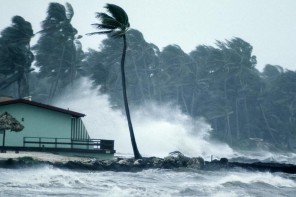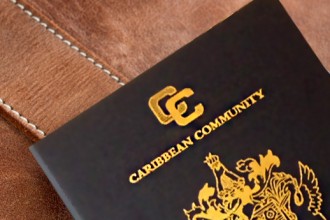Marine biologists, fisheries officers, scientists and natural resource managers from the Eastern Caribbean attended a workshop in Nevis on marine, socio-economic and management effectiveness data collection methods. Representatives contributed to drafts of their country’s first ever coral reef report card, which will guide an understanding of the overall health of marine areas and help leaders develop strategies to protect them.
The six-day workshop was part of the Climate-Resilient Eastern Caribbean Marine Managed Areas Network (ECMMAN) project and was hosted by The Nature Conservancy, along with regional partners UWI – Center for Resource Management and Environmental Studies (CERMES), International Union for the Conservation of Nature – Biodiversity and Protected Areas Management Programme (IUCN-BIOPAMA), OECS Commission and CaMPAM.
“This workshop improves how Eastern Caribbean shallow marine resources are monitored by evaluating the three major systems at play, the coral reef ecosystem, and the socio-economic and management systems,” said John English Knowles, conservation information manager for The Nature Conservancy. “The ECMMAN project continues to innovate how it advances marine management in the Eastern Caribbean.”
ECMMAN is sponsored by the German federal ministry for the environment, nature conservation, building and nuclear safety (BMUB) and supports the development of marine managed areas in Antigua and Barbuda, Dominica, Grenada, St. Kitts and Nevis, St. Vincent and the Grenadines and Saint Lucia.
On scuba dives into The Narrows, the proposed marine managed area between the islands of St. Kitts and Nevis, participants learned to track characteristics like algae cover, which reveal a larger story about the overall health of the ecosystem.
Other participants went into the community to practice social and economic data collection skills, after preliminary training about the global socioeconomic monitoring initiative for coastal management (SocMon). Participants also gained experience reviewing the management effectiveness tracking tool, which evaluates management practices implemented within protected areas.
“The management of coastal resources begins with managing people,” said Maria Pena, coordinator for the Caribbean SocMon initiative. “Managing people requires understanding their needs, perceptions and vulnerabilities. This is essential for assessing, predicting and managing coastal resource use over time and will strengthen marine managed area management in the region.”
Saint Lucia representatives included Craig Henry from the Saint Lucia National Trust, Allena Joseph and Thomas Nelson from the Department of Fisheries, as well as Joan Norville, representing the OECS Commission.
“I have a deeper appreciation of how these monitoring tools, when integrated, can assist managers to plan more effectively, communicate clearly and make more sound decisions in their protected areas,” Henry said.
By training individuals throughout the Eastern Caribbean, the ECMMAN programme is building a network of committed and well-informed individuals who contribute to a regional database of information. The data provides the facts upon which each country can tell a vibrant story that compels its citizens to take responsible actions to protect their ecosystems.
“It’s people who affect the reef,” said Patricia Kramer, a consultant for The Nature Conservancy, who will use feedback and data from the workshop to publish each country’s coral reef report card, “and it’s people who can change them for the better.”




